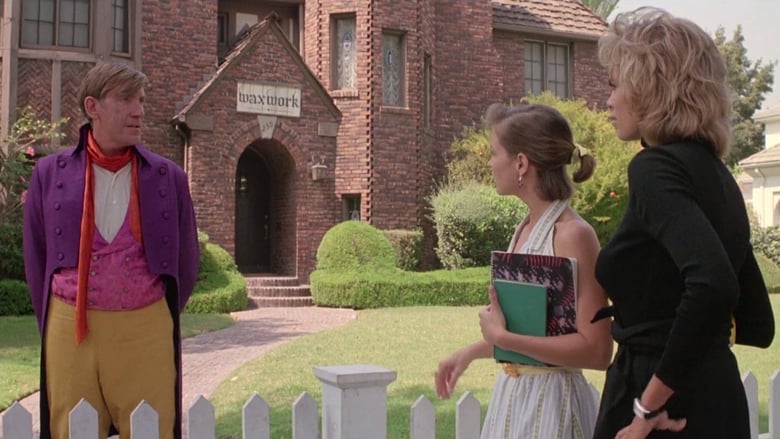

You remember that weird and distant excitement, as the men around Ryan keep the score: 'That's a kill. On satellite, of course - the bright blur of hot images, like those relayed from Stealth bombers during the Gulf war. There's an amazing scene, deep in an electronic bunker, where he and the CIA chiefs watch a terrorist training camp being rubbed out. Directors who make him merely thoughtful (in Presumed Innocent, for example) tip him into dullness, but Noyce keeps him scared and busy. I like him most in action pictures - he pulls off stunts well but wearily, as if there were something or someone else on his mind. He's only got one face, and it's here to stay. He can take a lot of close-up, not being one of those actors who try to impress the camera by pulling faces. And it ends off not with a fireball, but a ghost of smoke over the highway, haunting the eyes of Harrison Ford. I loved the car-chase, because (not to spoil it) one party doesn't know that the second party is right behind a third party does, but he's miles away. As he proved in Dead Calm, Noyce is a great mover and shaker of our fears, but he likes to work inch by inch, not with a monkey-wrench and a megaphone. Here Jack Ryan goes back to teaching, but not for long soon he gets tensed into classic paranoia - mirrors, backward glances, the soundtrack tickled by a wire brush on drums. His camera takes a long running jump at the coast of Maryland and soars high over the naval base, just for the hell of it. So it's a joy when the action switches to the States, and Noyce knows it. But how did small-town America come to stand for a mild but universal heartache, that twin sense of longing and belonging, while English towns shrink into parochial curiosities at a movie's touch? 'I gave up my ticket at Ketchworth,' said Celia Johnson, and you know just how she felt. Scotland, in fact, has fared rather better - think of those deep-breathing, luminous beach scenes in Local Hero. It happens everywhere: America has the western, but when did a filmed British landscape last move you, rather than remind you of a National Trust drying-up cloth? Michael Powell's A Canterbury Tale, I'd say, made in 1944, or one of his mysterious Scottish sequences. America was the cradle of cinema, and those early cries seem to have battered the landscape into the right format the cities grew up, and upwards, into a mythology woven for them by the movies, and still wear it like a good suit to pose for Hollywood's photographs.

#Waxworks movie movie#
She's fine on television, but point a movie camera at her and she goes all coy. But who's to blame? The government, the producers, the film schools, the morose legion of screenwriters? Hey, here's a new one: how about Britain? It isn't her worst failing, or her most important one, but really the old girl simply doesn't look the part.

WE ALL know about the British film industry, covered in mould and left at the back of the larder.


 0 kommentar(er)
0 kommentar(er)
